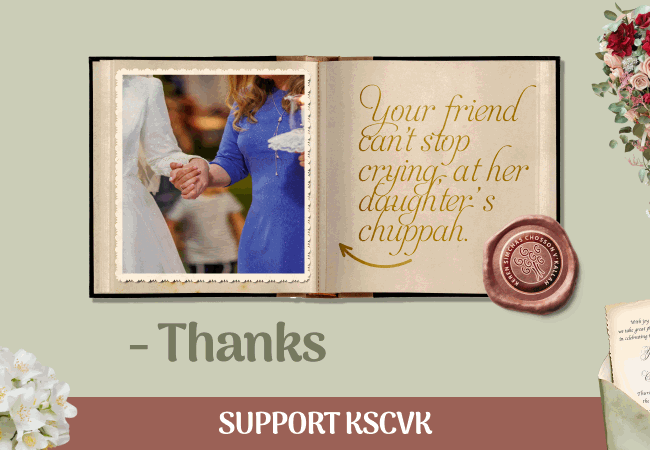CrownHeights.info and the Avner Institute is happy to present, a unique audience that took place between the Rebbe and a Jew from France. Yosef, a Sorbonne professor, was a ba’al teshuva [returnee to Judaism] exploring his heritage and bursting with questions about Chabad and the Rebbe himself. The Rebbe’s answers convey his heartfelt concerns not only toward his new guest but for all of his fellow Jews. Special thanks to Rabbi Yosef Gurevitch for his reminiscence of the encounter. to learn more about the Rebbe visit: portraitofaleader.org
A Yechidus with the Rebbe
CrownHeights.info and the Avner Institute is happy to present, a unique audience that took place between the Rebbe and a Jew from France. Yosef, a Sorbonne professor, was a ba’al teshuva [returnee to Judaism] exploring his heritage and bursting with questions about Chabad and the Rebbe himself. The Rebbe’s answers convey his heartfelt concerns not only toward his new guest but for all of his fellow Jews. Special thanks to Rabbi Yosef Gurevitch for his reminiscence of the encounter. to learn more about the Rebbe visit: portraitofaleader.org
Rabbi Gurevitch Relates:
“Yosef waited outside the office, vaguely aware of the swirl of black-coated officials and yeshiva students around him. Rabbis and scholars were still a novelty in his new life – a life he had chosen, or rather had chosen him, after years of fruitless wandering. But this rabbi and scholar – one who commanded an entire people, not merely a school or synagogue – was different. Famous, in fact, with followers the world over.
Yosef was told numerous times how lucky he was to get to meet such a personage face to face. He rehearsed to himself what to ask, repeating the questions mentally, and wondered how they might be interpreted.
At last he was summoned in. He entered the office nervously, glancing at the heavy, wooded paneling lined with bookcases, but was put at ease by the kindly visage peering at him from behind the oaken desk.
“Good evening, Rabbi Schneerson.” Yosef sat down.
He described to the Rebbe his forays into traditional Judaism and the numerous encounters with observant Jews of every stripe. “I have visited many different Jewish communities,” he explained, “and I have found that each one has a particular mitzvah or custom on which they place a stronger emphasis than on others. This had me wondering: what mitzvah should I personally choose and take extra measures to fulfill?”
“You do not have to search and discern which mitzvah is more important,” the Rebbe quickly answered. “Instead, you must fulfill all the mitzvoth without any exception.”
Yosef nodded, then continued describing his travels through Jewish life. “In the many communities I have visited, I have found that often one community might be jealous of another.”
At this point the Rebbe rose from his seat and gazed at the visitor with utmost seriousness. “There is nothing wrong with one community’s observation of another. If the purpose is to emulate the other’s growth and development, and to apply and integrate the other’s benefits, it is a positive thing. But to regard another community with jealousy is absolutely forbidden.”
Yosef paused, absorbing the information. “I am accustomed to visiting Lubavitcher homes, and in all of them I have seen pictures of you on the wall. Is displaying a picture of the Rebbe a Lubavitcher custom?”
“If a large picture bothers you, then a small one is fine,” the Rebbe replied. “But if even a small picture bothers you, then don’t bother putting up a picture at all.”
The modesty and diffidence greatly impressed Yosef. Nevertheless, he sensed that the Rebbe’s power derived from a source far beyond photos. “I have a feeling sometimes that the love of your Chassidim towards you in Paris is . . . a bit exaggerated?”
The Rebbe shrugged. “So their love towards me is a bit exaggerated. What can I do? I myself love every single Jew. Perhaps that you might call exaggerated.”
“How does the Rebbe know how to answer every Jew who asks him a question?” Yosef pressed. “Some of these people the Rebbe had never met before. Where does the Rebbe get his understanding of that specific person to answer him correctly?”
The Rebbe leaned forward. “In every human being’s life, not everything goes so smoothly. Life has its ups and downs, and problems arise. So what does a healthy person do? He will go to a friend or to different people who he feels know what is best for him and want to see him improve. He will share his problems with this friend or person, and then, based on the advice given to him, he will, it is hoped, improve himself from there.”
The Rebbe continued, “It is written in the Torah: VeAhavta LeReacha Kamocha – love every Jew as yourself. You must love every member of the nation of Israel with unconditional love.”
He smiled. “I hope you consider me as one who belongs to the Jewish nation. Therefore, I love every single Jew with the greatest love in the world. So when a Jew asks me a question, knowing how much I love and care for him, I know what to answer him.”














